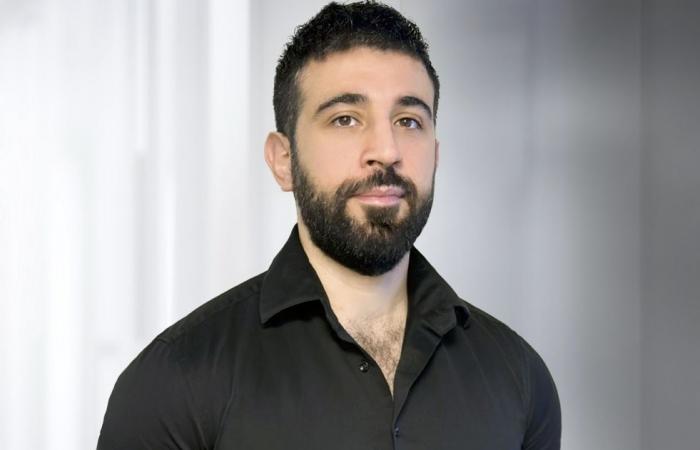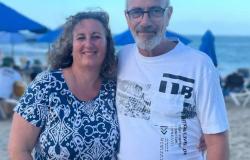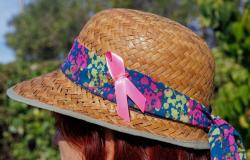To improve all these treatments and, possibly, even succeed in stemming new contaminations through the PREP, you have to conduct research. For this reason, the current medical clinic appeals to patients to participate in research cohorts.
These studies are essential for the development of new drugs and prevention treatments, such as PREP (drugs before sexual relation) injectable soon available. To find out more, we met SAM KajjoPHD, academic and clinical research coordinator at the current medical clinic. Seven people work on the academic and clinical research team.
“It is a very dynamic team, dedicated to research,” explains Sam Kajjo, who has been the coordinator for six months now. “For me, it’s a question of helping people in my community who suffer due to HIV. Growing up in Syria, it was not allowed to live who was, it was necessary to hide his sexual orientation all the time. I hid who I was until I arrived in Canada 12 years ago, where I finally came out. Here, I have the opportunity to work with a superb team. It is an honor for me to rub shoulders with Drs Réjean Thomas [président fondateur de la clinique] et Jason Szabo [directeur de recherche]. These are mentors for me. They have so much experience, expertise in medicine related to HIV-AIDS, but also the whole social, human side and how we can better help the community. I learn a lot with them. ”
“We have 12 clinical research in progress and others will start informed of 2025. It is enough that a patient mentions his interest in his doctor during a follow -up meeting. Everything is anonymously treated, ”explains SAM Kajjo Who, after studying biology and chemistry, has done his doctorate at McGill University on the subject of RNA “with the objective of doing research and being able to help people with HIV”. Some studies are currently focusing on injectable treatments. “These long -term treatments are intended to provide the person more immunity and make them more adherent to treatment,” continues SAM Kajjo. We are also looking for individuals who practice ” Chemsex ”. Injectables allow better observance of treatment in patients who sometimes forgot to take it every day. ”
Speaking of “Chemsex”, the “Cheers” study particularly wants to help this population. “If people practice the” chemsex “, it’s important to involve them in this study to let them know the psychosocial help services,” said SAM Kajjo. We are looking for 50 people for this survey and already 15 have manifested themselves in a month. “Quebec Don de Blood” is a long-term study, conducted in collaboration with the Sainte-Justine Hospital.
Recall that in 2022, Héma-Québec, lifted the ban on homosexual and bisexual men to give blood. However, there is a catch: “If someone is on the prep, Héma-Québec can assume that this person is sexually active and potentially carrying ITS (infections transmitted by sex and by blood),” Continue Sam Kajjo. “It is not very clear in the criteria of Héma-Québec, but it can refuse a gift from a man who is on the PREP.” With this study, we want to demonstrate that homosexual men are no more carriers of ITSS than other groups of the population and, “that in fact, they are more protected than others because they are under the Prep, precisely and followed. ”
Currently, to be able to give blood when you are on the PREP, it would be necessary to stop the treatment and wait a period of four months. And if this PREP is an injectable medication, a period of 2 years must be provided after the last injection. But when a person stops the prep, they can infected and infect others. “Héma-Québec has decided this rule without really doing any studies on this subject. This study, carried out with the Sainte-Justine hospital, will allow to collect scientific data. Until now, 300 people have been in this research at the clinic, the objective is to reach the number of 600 ”, underlines SAM Kajjo.
-Migrant populations can have access to prep via psharsah studies (men with sex with other men) and Nova which will be carried out in 2025. “This aims to make prep known to Harsah migrants”, recalls Sam Kajjo. “A migrant arriving in Canada, especially if he has suffered discrimination in his country of origin, might not think of protecting himself adequately and could infected. Videos, where migrants talk about their experiences with PREP and how they can protect themselves with drugs, will be available during the year. ”
“We want to reach 200 to 300 patients. We have launched an appeal to other clinics who have migrant clientele among their patients. It is not just about patients from the current clinic, but to join the migrants where they are. It is the same for several other studies, because this can benefit the entire LGBTQ+community ”, pleads SAM Kajjo.
Other academic research on the ITSS is underway or will be carried out in 2025. “The objective of all these studies is to improve the quality of life of HIV positive people, to reduce transmissions, to reduce stigma linked to HIV so that these people can have a normal life, be with a spouse who will be protected, also [puisque l’autre conjoint sera indétectable et donc intransmissible] or when this man is on the prep and, again, will be protected and protect the others, ”insists Sam Kajjo.
We understand that the database of the medical clinic is the most important. There are any data collected from consenting patients, anonymously, once again, that the clinic uses this data for research purposes. We thus collect figures on the different aspects of intersectionality between HIV and other diseases or other. “For example, how many people are both HIV positive and live with hepatitis C, or how much diabetic, or even are cardiac or suffer from high blood pressure, or use drugs, etc. Everything is anonymously collected, but these are important data that makes it possible to advance science, treatments, patient assistance, etc. ”, continues the research coordinator here.
Info: the current medical clinic, 1001, boul. De Maisononneuve East, Montreal, 11e Floor, office 1130. T. 514-524-1001 or Cliniquelactuel.com






